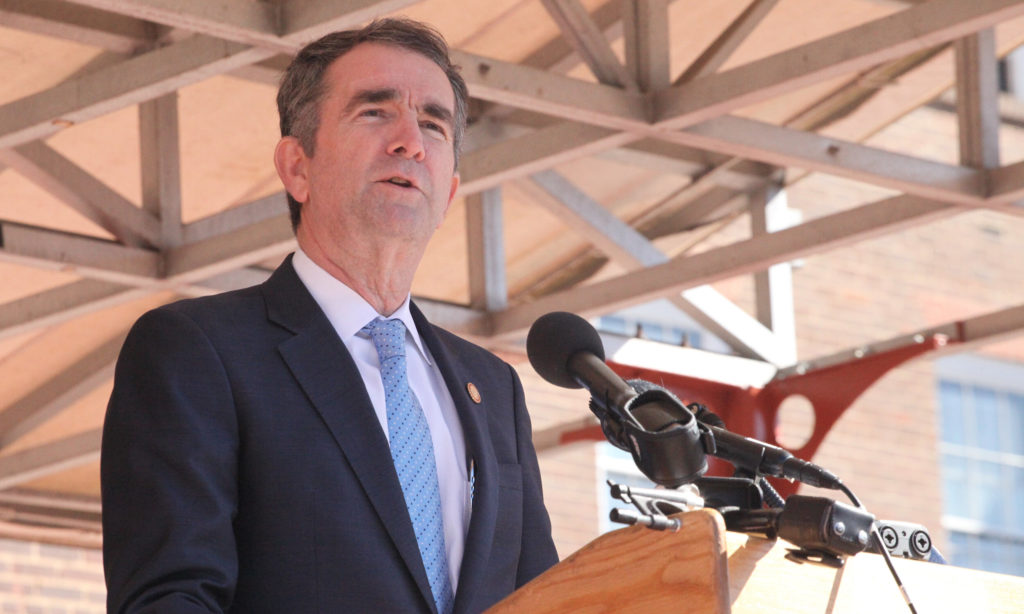Over the weekend, Governor Ralph Northam approved House Bill 972/Senate Bill 02, decriminalizing cannabis in Virginia. Decriminalization, which begins on July 1, 2020 means that cannabis possession of up to one ounce can only result in a maximum $25 citation and also means Virginians cannot be arrested or criminally charged for it. Additionally, amendments to HB 972 makes it so that past criminal records regarding cannabis charges are sealed preventing potential employers from knowing about cannabis-related charges and that what was formerly considered “hashish” now falls under the same category of cannabis.
“Virginians have long opposed the criminalization of personal marijuana possession, and Governor Northam’s signature turns that public opinion into public policy,” Jenn Michelle Pedini executive director of Virginia National Organization for the Reform of Marijuana Laws (NORML) said.
Currently, possession of cannabis in Virginia is a Class 1 misdemeanor and a first offense can result in 30 days in jail and a fine of up to $500. Subsequent offenses can lead to up to 12 months in jail and a $2,500 fine.
In February, when it seemed as though decriminalization would likely pass in Virginia, local news affiliate ABC 8 noted that decriminalization would drastically reduce the number of arrests for cannabis possession in the state. “According to data from the Virginia Criminal Sentencing Commission, more than 15,000 people were convicted for a first or second marijuana possession offense from July 2018 to June 2019,” ABC 8 reported. “The vast majority were sentenced to probation but more than 1,300 served time in jail for an average of about nine days.”
At the end of March, the American Civil Liberties Union (ACLU) sent a letter to Northam pushing for amendments to HB 972/SB 02 to make sure to “to repeal the prohibition on simple marijuana possession to help take away a racist policing tool and set the stage for more equitable marijuana reform.” The letter went on to say, “Virginia should address racially-biased marijuana enforcement and change laws that unnecessarily and unjustifiably lead to more people interacting with the criminal legal system.”
Virginia’s population is 19% black but nearly half of Virginia’s 2018 convictions for cannabis were black Virginians. Virginia NORML’s Pedini when she spoke to Marijuana Moment stressed that “decriminalization…is not a solution to marijuana criminalization.”
Over the past week, Northam also signed Senate Bill 976, which would basically replace the state’s “affirmative defense” form of medicinal cannabis, which meant that certain doctors could recommend cannabis and if a patient were arrested for possession, patients could provide their doctor’s recommendation as defense. Now, there will be a proper medicinal cannabis industry with dispensaries in the state.
“Virginia patients will finally have access to medical cannabis products and explicit legal protections,” NORML Virginia’s Pedini said.
Nonresidents living in Virginia will also be able to register with Virginia’s medicinal cannabis program.
Lastly, HB 972 establishes a working group to look into cannabis legalization for recreational adult use. That report on legalization from the working group must be completed by November 3, 2021.
These changes to cannabis policy in Virginia recall Maryland’s 2014 decriminalization along with the introduction of medicinal cannabis and the state’s slow walk to legalization for recreational adult use. And those similarities suggest the possibility of a problematic roll-out (one way Virginia is ahead of Maryland is that Maryland increased its decriminalization threshold from 10 grams to one ounce this past legislative session).
Critics of legislation choosing decriminalization over legalization in Maryland have noted ongoing racial bias among cannabis arrests and continued post-decriminalization. And throughout 2019, Maryland’s General Assembly convened a Marijuana Legalization Workgroup. At the time, it was assumed the workgroup would recommend cannabis legalization for the 2020 legislative session but then the workgroup announced at the end of 2019 that it would not be recommending cannabis legalization citing racial equity concerns, frustrating many cannabis advocates.
These are some of the immediate big picture concerns Virginia’s legislature will have to consider and how Maryland has handled—or arguably, mishandled—them is important.
Photo of Ralph Northam by Eli Wilson / Courtesy Shutterstock

